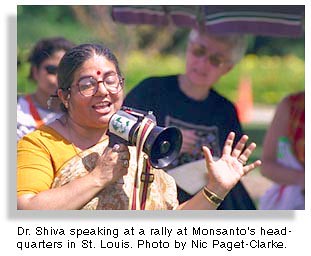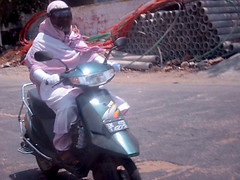Want to know what to do for your Valentine this year?
Call Kathleen Wynne, Ontario’s Minister of Education and ask when the already promised Women’s and Gender Studies course will be added into the Ontario Secondary School Curriculum.
Kathleen Wynne’s Office: 416.325.2600
TDD/TTY: 1-800-263-2892
Today, February 14th 2008, between 9 and 5, pick up the phone and help stop sexual harassment.
Touching, grabbing, gang-style rape. These are just some of the incidents revealed in the Falconer Report. Sexual and gender-based violence is reaching epidemic-levels.
According to the Canadian Centre for Addiction and Mental Health:
“four percent of males in grade 11 admitted trying to force someone to have sex with them, while 10 percent of males and 27 percent of females admitted being pressured into doing something sexual that they did not want to. Not surprisingly, the data shows that girls are feeling this pressure more than boys, with 15 percent reporting that they had oral sex just to avoid having intercourse.” Is this okay with you?
Here’s more from the Miss G_ Project for Equity in Education:
******
Please join us in our most crucial campaign yet!
“No More Miss Nice G__” is a phone calling campaign taking place on February 14, 2008. HAPPY VALENTINE’S DAY! We are asking all supporters of the project to call the Ministry of Education expressing that we cannot afford to wait any longer for a Women’s and Gender Studies course to be added into the Ontario Secondary School Curriculum.
**** Calling the Ministry of Education is absolutely not as stressful nor as intimidating as it may sound. In fact, you are a citizen and it is the Ministry’s job to listen to you and to take your calls.
PHONE #s:
Kathleen Wynne’s Office: 416.325.2600
TDD/TTY: 1-800-263-2892
WHEN: between 9am – 5pm Thursday, February 14 (If that doesn’t work for you, anytime is better than never).
WHAT TO EXPECT: This number will take you directly to Kathleen’s office, where her assistant will either pick up, or you will be put through to her assistant’s voicemail. You can leave a personal message or voicemail recording for her assistant to pass on to Minister Wynne.
WHAT TO SAY: Identify who you are and where you are from. State that you are leaving a message for the Minister of Education, Kathleen Wynne, and express your support for a Women’s and Gender Studies course being implemented into the Ontario Secondary School Curriculum. Ask when Minister Wynne will honour her promises and policy-commitments to introduce WGS into the provincial curriculum. (There are more ideas for things to say below.)
—> Bonus points: Talk about a personal experience that proves to you why addressing this issue is so important and urgent.
WHAT TO REMEMBER: You are fabulous and intelligent, you have an opinion, and your voice needs to be listened to!
If you have any questions or need any encouragement, do not hesitate to leave a post or to contact themissgproject@gmail.com.
*************************************
JUST THE FACTS MA’ME
(or, why would I want to do this anyway?)
*************************************
FACT: The recently released “Falconer Report” found that sexual assault and sexual harassment are alarmingly prevalent in Toronto schools and the authors recommended that the Toronto District School Board should “develop a sexual assault and gender-based violence policy” and partner with community agencies to provide services for women and girls experience violence. (http://www.thestar.com/News/GTA/article/292869)
FACT: All students, regardless of their race, gender, sexual orientation, deserve to go to school in a safe environment. In fact, government policy guarantees “all students… a safe and secure environment so that they can participate fully and responsibly in the educational experience.”
FACT: In response to the Falconer report, Minister Wynne stated, “we know prevention is better than reaction,” and speaks frequently in support of “inclusive learning environments.”
FACT: A women’s and gender studies course in high schools — which the Miss G Project has been working with the government to implement for the last 3 years — would be one highly effective way of creating that inclusive learning environment and preventing sexual assault and harassment THROUGH EDUCATION. From the experiences of teachers and students taking locally developed WGS courses across the province, we know that opening up a space for dialogue and providing information on issues of gender-based violence and harassment is an effective and desperately needed way of addressing and PREVENTING injustices occurring in schools.
FACT: A Women’s and Gender studies course would address issues of sexism, homophobia, gender roles, violence and harassment as well as infuse information about women’s history, writing and experiences into the curriculum (which it is now sorely lacking).
FOR MORE INFO ABOUT WGS, visit…
“Why Women’s & Gender Studies in High Schools?” and
“Everything You Ever Wanted to Know about WGS”
No More Miss Nice G__!!!
************
The Shameless blog has put together a bit of a script to help:
RING THE MINISTRY’S BELL: Some ways to have your say.
The best message is one straight from your heart (wink), but if you’re like many of us and prefer a prepared message, may we suggest some of the following:
“Hello, my name is____, and I’m a [student, parent, teacher, concerned citizen, etc.] from ____, and…
… I would like to leave a message for Minister Wynne asking when a WGS course will be implemented in the Ontario secondary school curriculum.”
… I am getting tired of waiting for a WGS course to be introduced to the provincial curriculum.”
… I wish that i had had WGS when i was in high school, and hope that future generations will have the knowledge to make better decisions and oppose oppressions.”
… I am tired of the gender-based injustice that goes on in schools and believe a WGS course would be an effective form of prevention.”
 Comments(7)
Comments(7)

